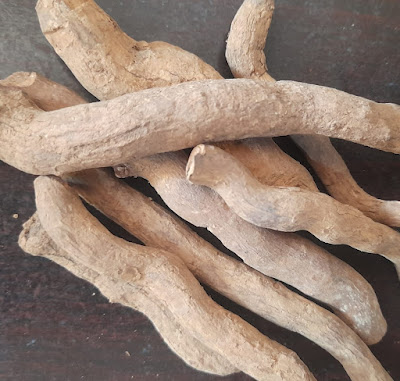Rauwolfia serpentina (L.) Bth: An Overview
Introduction
Rauwolfia serpentina(Asrol), a member of the Apocynaceae family, is a plant renowned for its medicinal properties deeply rooted in traditional and modern pharmacology. Commonly known as Indian snakeroot or Sarpagandha, it is native to the Indian subcontinent and has been historically utilized in Ayurvedic medicine for its tranquilizing and antipsychotic effects. The plant’s therapeutic potential lies primarily in its alkaloid content, notably reserpine, which has been crucial in the treatment of hypertension and various psychiatric disorders. This introduction sets the stage for exploring its botanical characteristics, pharmacological properties, and significance in both traditional and contemporary medicine.

Botanical Name:
Rauwolfia serpentina (L.) Bth.
Family:
Apocynaceae
Urdu Name:
Asrol, Choti-Chandan
English Name:
Rauwolfia, Snake root
Parts Used:
Root
Temperament:
Cold and dry
Order:
3rd order
Geographical Source:
Found in Nepal, Sikkim and Assam in India, Bhutan, Pakistan, Java, and Thailand.
Organoleptic Evaluation:
Taste: Bitter
Odour: Indistinct
Texture: Hard and rough
Colour:
Outside: Greyish yellow to light brown
Inside: Pale yellowish white
Appearance: Sub-cylindrical to tapering, branched, and stout.
Pharmacological Actions / Functions:
Rauwolfia serpentina exhibits several pharmacological properties:
Antihypertensive: Helps in reducing high blood pressure.
Hypnotic: Induces sleep.
Sedative: Calms the nervous system.
Increase Uterine Contractions: Stimulates uterine muscles.
Central Nervous System Stimulator: Activates and stimulates the CNS.
Specific Actions:
Rauwolfia serpentina primarily acts as an antihypertensive and sedative with psychotropic effects.
Chemical Constituents:
The plant contains several active compounds, including:
Reserpine
Rescinnamine
Deserpidine
Ajmaline
Ajmalicine
Serpentine
Serpentinine
Alsotonine
Indole Alkaloids
Mode of Action:
Rauwolfia serpentina Reduces anxiety and hypertension through its various constituents:
Reserpine: This active compound affects neurotransmitters in the brain, providing sedative, anxiolytic, and antidepressant effects. It works as an adrenergic blocking agent, treating mild to moderate hypertension by disrupting norepinephrine storage in nerve endings.
Rescinnamine: Used to treat agitation in psychotic conditions like schizophrenia. It is broken down by cytochrome enzymes such as CYP3A4 and CYP2D6, which regulate mood and anxiety by metabolizing neurotransmitters like serotonin, dopamine, and norepinephrine. The plant extract exhibits neuroprotective effects when taken orally, reducing stress-induced behavioral changes and alleviating anxiety.
Lower blood pressure
Deserpidine: This chemical constituent is used for treating high blood pressure and agitation in patients with mental disorders. It lowers blood pressure and slows the heart rate by affecting the sympathetic nervous system. Cytochrome enzymes influence the metabolism of neurotransmitters like GABA (inhibitory) and glutamate (excitatory), which play roles in anxiety and blood pressure regulation.
Medicinal Uses:
The root of Rauwolfia serpentina, known for its bitter taste, is a well-recognized sedative and hypnotic with additional febrifuge properties. The powdered root is administered for various conditions, including:
Insanity, hysteria, high blood pressure, epilepsy, and insomnia: Particularly effective when the patient is not temperamentally bilious.
Poisonous insect bites: The bruised root applied on the site provides immediate relief.
Hypnotic effect: A single dose with aqua rose induces sleep in mentally retarded individuals and helps other patients suffering from insomnia.
Uterine contractions: The root decoction increases uterine contractions, aiding in the expulsion of the fetus.
Gastrointestinal issues: The root serves as a remedy for painful bowel affections, dysentery, hypochondria, and irritative conditions of the central nervous system.
Fever, cholera, and colic: When combined with Andrographis paniculata, ginger, and black salt for fevers, with Aristolochia bracteata for cholera, and with Kurchi for colic.
Compound Preparations:
Rauwolfia serpentina is used in various compound preparations such as:
Hab Dawaul Shifa
Hab Fishar
Ajmaleen
Different syrup preparations
Dosage:
The recommended dosage ranges from 250 mg to 1 g.
Corrigent:
Delphinum denudatum Wall. (Jadwar)
Piper nigrum Linn. (Filfil Siyah)
Tenedium:
Valeriana officinalis Linn. (Balchar) for hypotensive action
Valeriana officinalis Linn. and V. hardwickii Wall. (Asarun) as cardiac tonics
Side Effects:
In large doses, Rauwolfia serpentina can induce deep sleep where reflexes and pain sensation are significantly diminished, potentially leading to death from asphyxia due to paralysis of respiratory centers.
Excessive use may cause irritation in the alimentary canal and vomiting.
Prescription:
Rauwolfia serpentina (Asrol) 30g
Cardamom (Alaichi) 20g
Bambusa Arundinacea (Tabsheer) 20g
Dry Coriander (Dhania) 10g
Crystal Sugar 100g
Mix all ingredients and make a powder then fill capsule.
1 capsule twice a day after meal with water
Conclusion:
In conclusion, Rauwolfia serpentina stands as a testament to the rich botanical diversity and medicinal potential found in nature. From its origins in traditional Ayurvedic practices to its integration into modern pharmacology, this plant has demonstrated significant therapeutic benefits, particularly through its alkaloid compounds like reserpine. Its role in treating hypertension and psychiatric conditions underscores its enduring relevance in medical research and practice. As we continue to explore and harness the healing properties of plants like Rauwolfia serpentina, we honor centuries of wisdom while advancing towards new frontiers in health and wellness.
